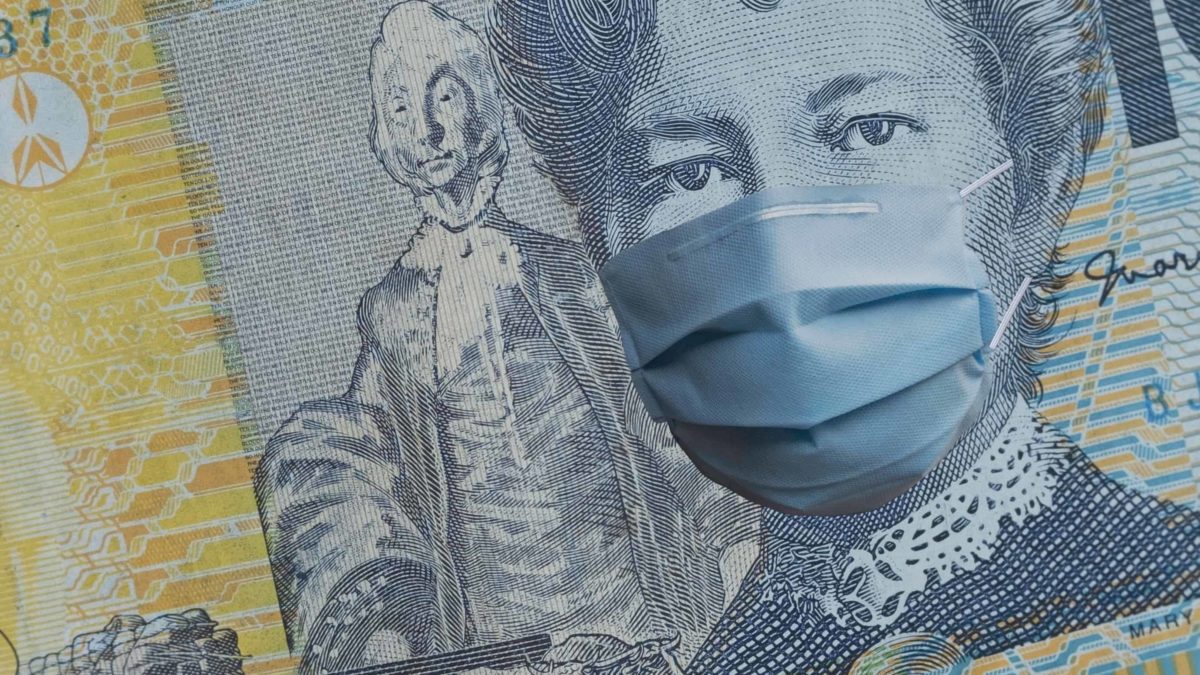ASX reporting season is upon us. A handful of companies have already released their full year or quarterly results. But the bulk are yet to come. ASX bank shares will be among those dominating the financial news headlines, particularly when the big four banks release their reports.
Tomorrow, Commonwealth Bank of Australia (ASX: CBA) releases its full year report. It's the first of the big four banks to do so.
National Australia Bank Ltd. (ASX: NAB) is up next, releasing its third quarter results on Friday.
Next week, Westpac Banking Corp (ASX: WBC) releases its third quarter report on Tuesday 18 August. Australia and New Zealand Banking Group Limited (ASX: ANZ) follows with its third quarter results next Wednesday.
Avert your eyes!
Why this reporting season really is different
That may seem like odd investment advice. And ordinarily it would be. But these are no ordinary times.
We're not talking about the trade ructions between the United States and China here, disputes that inevitably envelop Australia. Or the diplomatic wrangling between the United Kingdom and the European Union over who gets to fish where post-Brexit. Or even the nuclear sabre rattling by despots like North Korea's Kim Jong-un.
Unfortunately, all these events — and a laundry list of others — are very much part of our ordinary times. But the COVID-19 pandemic — and the lockdown measures put in place around the globe to contain it — are not.
Which is why I believe you should take the results from the current reporting season with a very large grain of salt. But don't just take my word for it.
ST Wong is the Chief Investment Officer of Prime Value Asset Management, which manages more than $1.5 billion in assets. Here's what he wrote in last Wednesday's Australian Financial Review:
"Compared to previous years, financial guidance from companies will be less forthcoming, leading to large dispersions in analysts' estimates for the 2021 financial year. Companies' cash flows will be distorted by provisions for bad debts, inventory and working capital build-ups. Against this backdrop, companies that demonstrate visibility in earnings growth, strong cash flow conversion, robust balance sheets and management adaptability to change will be bid up".
And it's not just companies struggling to forecast their financial outlooks. States and governments are also mired in uncertainty.
In her speech last Friday, the Reserve Bank of Australia's Assistant Governor, Luci Ellis, outlined the economic ambiguities thrown up by the coronavirus, saying:
"The course of the virus is very uncertain, and so will be people's responses to it. Given this uncertainty, we have again presented the outlook in the form of three scenarios. The difficult situation in Victoria is an example of how quickly this can change".
Treasurer Josh Frydenberg concurred, stating, "We're living in unprecedented times, with a once in a century pandemic, and it's a very fluid situation".
'Invest to hold'
With uncertainty claiming the day — and the coming months — day trading shares has never been riskier.
Traders with cast iron stomachs will tell you that along with that higher risk comes the potential for higher rewards. And that's true. But that's not unlike your potential rewards going up when you bet on the long-shot horse winning the Melbourne Cup.
The odds of consistently correctly guessing the next phase of Australia's battle against the virus —and which shares stand to gain or lose short term — are long indeed.
That's why The Motley Fool's own Scott Phillips recommends the 'buy to hold' investing style. That's to discern it from 'buy and hold', which traders are quick to criticise as they see that as holding onto every share you buy and never checking in on its performance or outlook again.
But as Scott writes: "In whatever form, using whatever words, the idea of buying great businesses and holding them for as long as it makes sense is a tried and tested approach to investing well. It's our preferred approach, and one we're using in our continued quest for market-beating returns".
With ASX bank shares facing a potential hit during the coming reporting week, some traders will be betting against them by shorting their shares. That may, or may not work out in the short run.
But longer term, you should keep in mind that ASX bank share prices are still well down from their February highs: CommBank's share price is down nearly 17%; ANZ's share price is down just under 32%; NAB's share price is down over 34%; and the Westpac share price is down nearly 31%.
If you have a long-term investing horizon (at least 3 to 5 years), you may want to see how the market reacts to the banks' upcoming reports, then consider buying shares of what have historically been some of the best dividend paying shares on the ASX.









